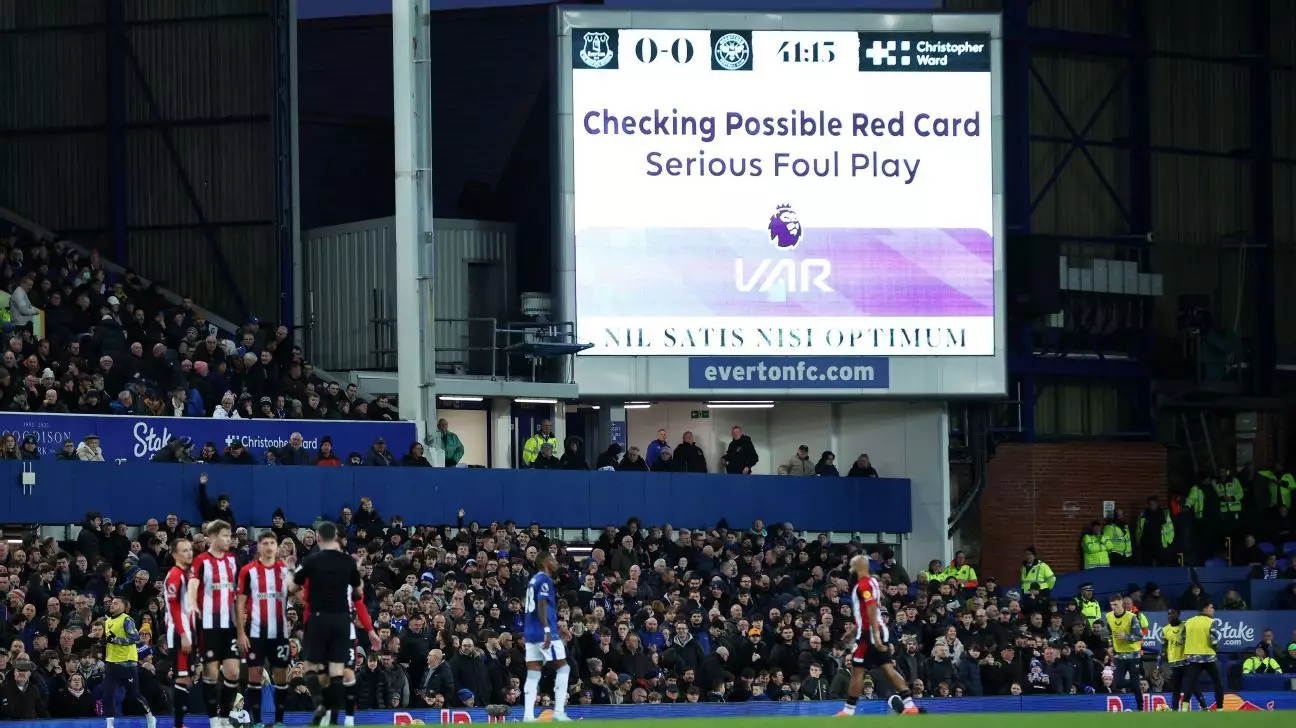In a dramatic turn of events during a match against Everton, Brentford’s Christian Nørgaard was initially shown a red card for what appeared to be a controversial foul. This incident sparked a heated debate about the reliability and effectiveness of Video Assistant Referee (VAR) technology in football. As Brentford fought for crucial points in a tightly contested match, the implications of this decision extended far beyond that day’s performance, signaling an ongoing struggle between traditional officiating and modern technology.
Nørgaard’s dismissal occurred midway through the first half as he attempted to connect with a ball in the box, inadvertently making contact with Everton goalkeeper Jordan Pickford’s leg. Interestingly, the on-field referee, Chris Kavanagh, did not deem this action worthy of a foul. However, after consulting the VAR, a decision was made to issue a red card for serious foul play, leaving Brentford’s manager, Thomas Frank, seething with frustration.
Frank’s assertion that Nørgaard’s actions were entirely unintentional is a crucial point in this discussion. He articulated that Nørgaard was merely attempting to score and was, in fact, pulling away in anticipation of the play’s outcome. This raises a pivotal question regarding the application of VAR: are referees losing their autonomy and intuition to technology, thus undermining the fluidity and human element of the game?
Had the appeal not been successful, Nørgaard would have faced bans in upcoming matches against significant opponents, a loss that could have severely impacted Brentford’s season. The fact that Brentford was able to overturn this decision not only secures their captain’s presence on the pitch but also highlights the ever-growing pressure on referees to either adhere to their own judgments or capitulate to VAR assessments. This ongoing conflict serves as an indictment of how VAR has altered the landscape of football, often leading to more questions than answers regarding officiating standards.
Furthermore, Frank’s comments shed light on a broader issue: the need for common sense in officiating decisions. The lack of consistent application of rules and the inability to evaluate the intention behind player actions adds layers of complexity to the game. It calls into question the necessity for stricter guidelines on how VAR should be utilized, particularly when considering player safety and the spirit of the game.
As technology continues to evolve, football finds itself at a crossroads. The Nørgaard incident invites stakeholders to reflect on the critical balance between technological intervention and maintaining the integrity of the game. Ultimately, the goal should be to enhance fair play rather than complicate it—an ambition that requires ongoing dialogue and adjustments from governing bodies, referees, and clubs alike.
Brentford’s successful appeal against Christian Nørgaard’s red card serves not only as a victory for the club but also as a significant commentary on the role of VAR in modern football decisions. Moving forward, it will be interesting to observe how this technology continues to develop, and how football authorities respond to the legitimate concerns surrounding its use.

Leave a Reply